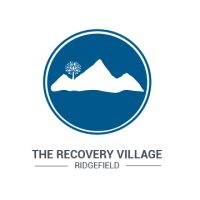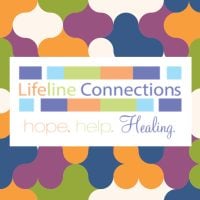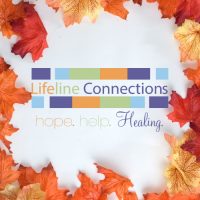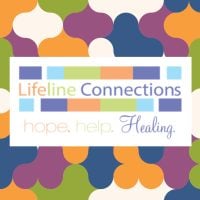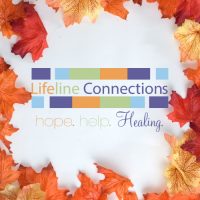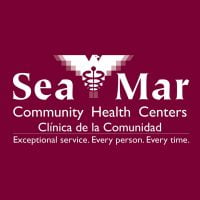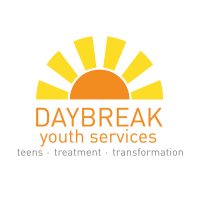Center for Dual Diagnosis Recovery Columbia River Mental Health Services
Drug Rehab Center in Vancouver, Washington
CDDRCRMHS is an addiction treatment facility in Vancouver, Washington that specializes in treating patients with a dual diagnosis and offers comprehensive, evidence-based treatment options including medical detoxification, therapy, and holistic approaches.
Multiple patients have reported Center for Dual Diagnosis Recovery Columbia River Mental Health Services as permanently closed.
Research other rehabs in Vancouver, Washington, or get help finding an open facility.
About This Vancouver, WA Facility
Center for Dual Diagnosis Recovery Columbia River Mental Health Services (CDDRCRMHS) is an addiction treatment facility located in Vancouver, Washington. The facility specializes in the treatment of patients with a dual diagnosis of addiction and mental illness, and they offer a variety of treatment options to fit individual needs. Their services include medical detoxification, inpatient and outpatient services, medication management, medication-assisted treatment (MAT), individual and group therapy, and holistic approaches such as yoga and exercise therapy.
CDDRCRMHS provides a comprehensive, evidence-based approach to treatment that emphasizes the biological, psychological, and social components of addiction and mental illness. They offer evidence-based therapies such as cognitive-behavioral therapy, trauma-informed care, dialectical behavior therapy, and mindfulness-based cognitive therapy to help their patients develop the skills and resources necessary to lead a healthy, substance-free life. They also provide educational and therapeutic support services, including family education, vocational rehabilitation, and relapse prevention.
CDDRCRMHS is accredited by The Joint Commission, licensed by the Washington Department of Health, and is proud to be a certified medical treatment facility through the Office of Mental Health and Substance Abuse Services. They also have received both state and national awards for their inpatient and outpatient services. The highly-trained staff at CDDRCRMHS works diligently to provide a safe and welcoming environment for their patients, and they strive to offer compassionate and effective care.
Genders
Ages
Modality
Additional
Accreditations
SAMHSA
Conditions and Issues Treated
Recovering from any type of substance abuse is a long process, but it is one of the most worthwhile and life changing events any addicted person will ever go through. This is a combination of detoxing the body, rehabilitation, and recovery. There is also therapy, aftercare, and support during the entire process.
While substance abuse can take over a person’s life, it is something that can also be overcame by professionals at Center for Dual Diagnosis Recovery Columbia River Mental Health Services in Vancouver, WA
With so many people struggling with opioid addiction, opioid addiction treatment is more critical than ever before. Patients often take opioids when they face a painful injury. When someone begins taking opioids such as Vicodin or oxycodone differently than how the medications were prescribed, this points to opioid addiction.
Stopping these types of medications abruptly is not safe. That is where opioid addiction treatment at Center for Dual Diagnosis Recovery Columbia River Mental Health Services in Vancouver, WA comes in. Most opioid addiction treatment facilities start with detox and move to rehabilitation services while providing medical support during the process.
Getting over an opioid addiction takes time and determination, but with the right support and resources, those struggling with opioid addiction can recover and move forward with their lives.
Levels of Care Offered
This center offers a variety of custom treatment tailored to individual recovery. Currently available are Aftercare Support, Drug Rehab, Intensive Outpatient, Outpatient, with additional therapies available as listed below.
Intensive Outpatient Programs (IOPs) are treatment programs suitable for people who wish to stay at home while undergoing treatment. IOPs like Center for Dual Diagnosis Recovery Columbia River Mental Health Services make it possible for individuals to carry on with their responsibilities at work or school, in or near Vancouver, WA. It’s easy to find an IOP center that offers individualized treatment protocols.
Outpatient treatment can be considered the lowest intensity level of addiction treatment in Vancouver, WA. It is ideal for early phase addiction or lower intensity addictions. Center for Dual Diagnosis Recovery Columbia River Mental Health Services peer group support, 12-step programs, and individual counseling may still be involved.
Aftercare support plays an important role when sustaining a patient’s full recovery at Center for Dual Diagnosis Recovery Columbia River Mental Health Services. Patients also receive assistance in making living arrangements in halfway houses. Career counseling is available for those who want a fresh start. There are also local community programs in Vancouver, WA such as Alcoholics Anonymous.
Center for Dual Diagnosis Recovery Columbia River Mental Health Services‘s Therapies & Programs
Families are not always as supportive as they could be, but by opting for family therapy, many recovering addicts are able to understand their addiction and get the support they need to get sober. These therapy sessions at Center for Dual Diagnosis Recovery Columbia River Mental Health Services in Vancouver, WA involve all members of the family who play a role in the recovering person’s daily life. They work together to overcome past issues, avoid triggers, and remain strong and supportive of each other.
In group therapy, the patient undergoes sessions with other patients dealing with similar problems under the guidance of a trained counselor. The members of the group interact with each other and talk freely about their issues. The recovery of members of the group from the problems that they face gives the patients confidence that they can also overcome their addiction.
Group therapy at Center for Dual Diagnosis Recovery Columbia River Mental Health Services reduces the feeling of loneliness and improves the coping skills of the patients. Group therapy provides patients with continuous feedback from other members. The group dynamics ensure that members start having some structure and routine in their lives.
Dialectical behavior therapy (DBT) is a method of individual and/or group counseling that focuses on acceptance and change. DBT can be very effective in developing coping strategies for negative emotions.
Cognitive behavioral therapy (CBT) is a way of addressing concerns through talking. Talking through issues can identify sources of discomfort or unhealthy thoughts. CBT is a healthy way Center for Dual Diagnosis Recovery Columbia River Mental Health Services addresses some behaviors which may be bringing unintended consequences in a persons life.
Payment Options Accepted
For specific insurance or payment methods please contact us.
Is your insurance accepted?
Ask an expert, call (888) 674-0062
Additional Details
Specifics, location, and helpful extra information.
Vancouver, Washington 98661 Phone Number(360) 993-3000 Meta DetailsUpdated November 25, 2023
Staff Verified
Patient Reviews
There are no reviews yet. Be the first one to write one.
Vancouver, Washington Addiction Information
Washington's substance use, abuse, and addiction rates have followed the trends of the rest of the over the past years. Methamphetamine abuse is the biggest threat to Washington. Heroin-related overdoses increased by almost 450% from 2006 to 2016. 20% of all annual deaths in Washington are somehow drug and/or alcohol-related. Drugs are widely abused in Washington because they are easily trafficked in and out of the state.
Vancouver, WA, has one of the highest rates of drug abuse in the entire country. In 2016, there were 392 drug-related calls for service, an increase of almost 9% from the year before. The most common drugs abused in Vancouver are methamphetamine and marijuana. Vancouver, Washington, has many different types of drug rehab centers that offer various services. 12-step programs are generally ongoing and common there.
Treatment in Nearby Cities
- Monroe, WA (155.7 mi.)
- Raymond, WA (90.0 mi.)
- University Place, WA (110.0 mi.)
- Nespelem, WA (244.5 mi.)
- Lynnwood, WA (151.0 mi.)
Centers near Center for Dual Diagnosis Recovery Columbia River Mental Health Services
The facility name, logo and brand are the property and registered trademarks of Center for Dual Diagnosis Recovery Columbia River Mental Health Services, and are being used for identification and informational purposes only. Use of these names, logos and brands shall not imply endorsement. RehabNow.org is not affiliated with or sponsored by Center for Dual Diagnosis Recovery Columbia River Mental Health Services.


